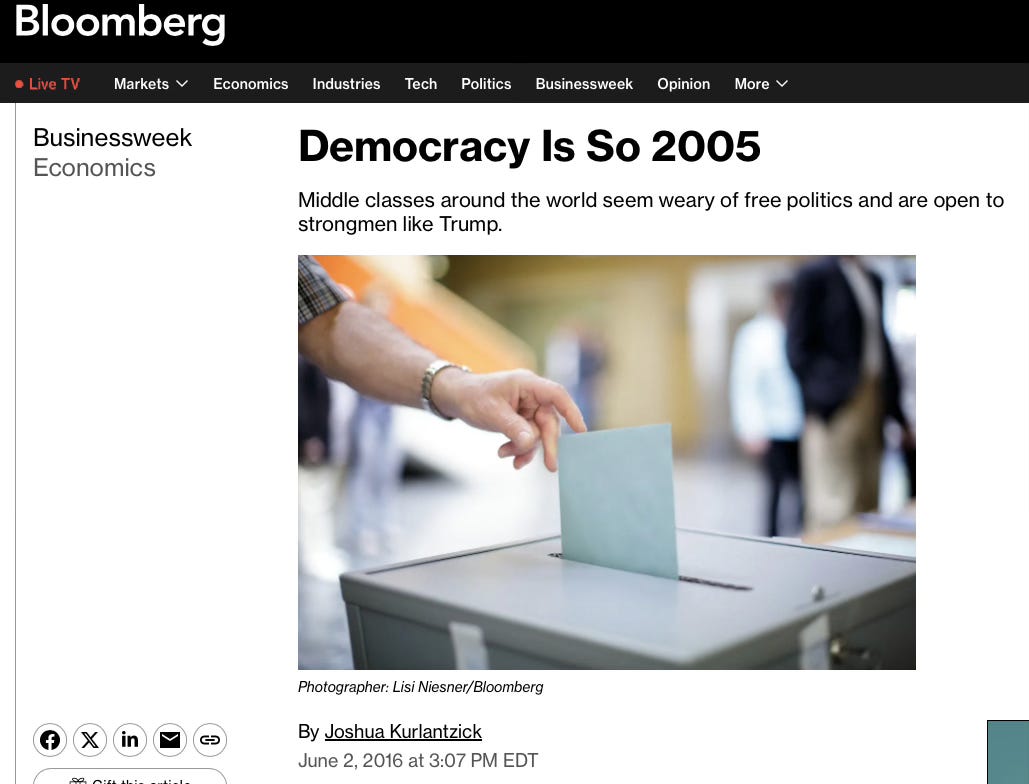Democratic Entanglement
Prospects for free societies are entwined
(Bloomberg headline, 2016)
For two decades, democracy has been in retreat. The backsliding has often been contagious, with loss of freedom in one region benefitting autocrats in others.
An analogy with quantum entanglement occurred to me. To remind, a particle’s quantum state cannot be determined without taking account of the state of others in the group. But the full nature of this dependence remains unclear.
The same is true for democracy: the fate of one depends on what is happening in and to others, even when the channels of this inter-dependence are not fully charted. I’m calling this, for want of a better term, democratic entanglement — meaning simply that the state of one depends on the state of many others.
In other words, our fates as free citizens are deeply inter-twined: individual national democracies do not tend to thrive without wider success.
For at least 80 years, we have mapped global trends driving the fortunes of democracy. In 1945, there were only twelve. After a wave of postwar reconstruction and decolonization, by 1960 the count had reached 30.




